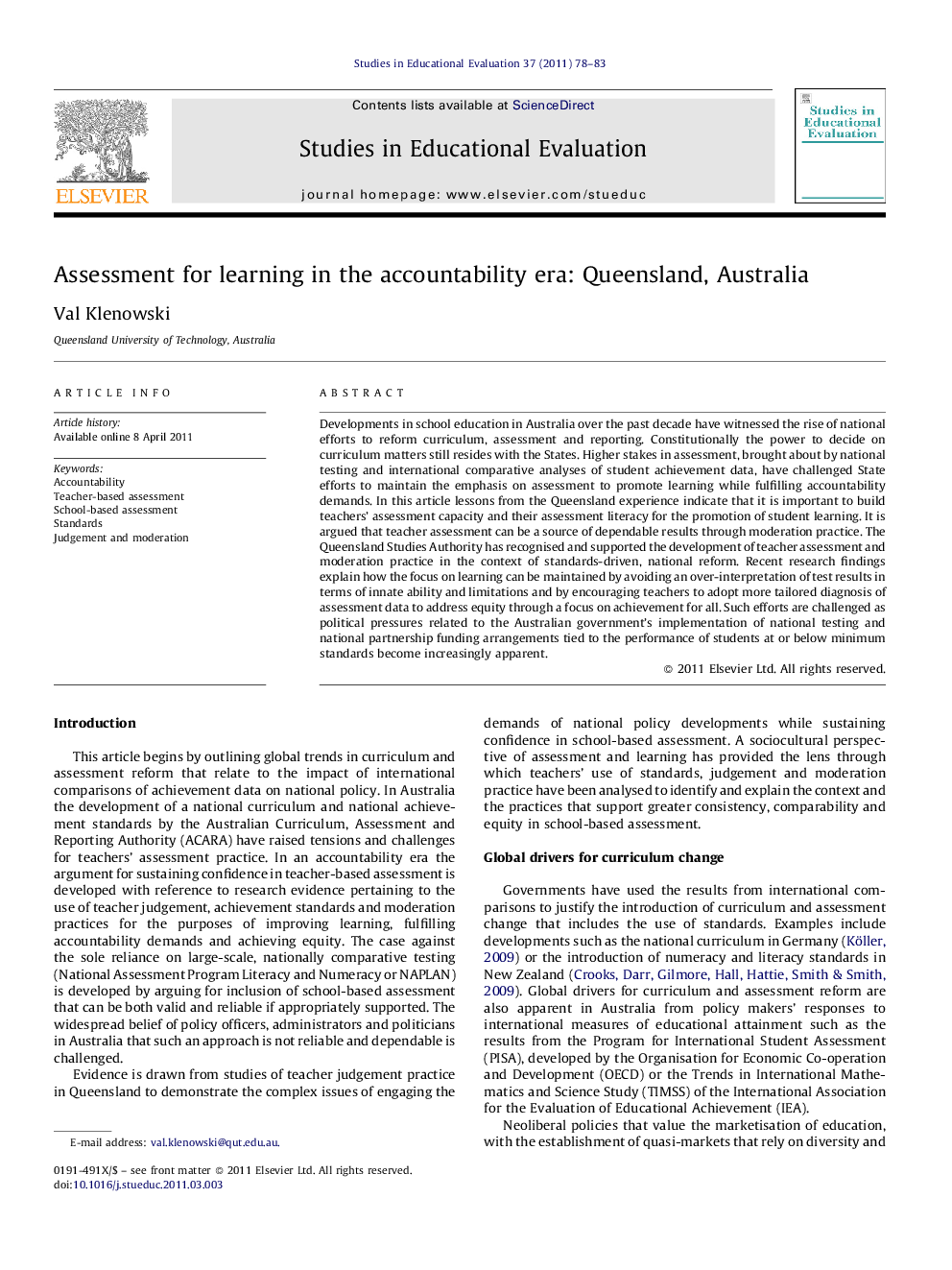| Article ID | Journal | Published Year | Pages | File Type |
|---|---|---|---|---|
| 372749 | Studies in Educational Evaluation | 2011 | 6 Pages |
Developments in school education in Australia over the past decade have witnessed the rise of national efforts to reform curriculum, assessment and reporting. Constitutionally the power to decide on curriculum matters still resides with the States. Higher stakes in assessment, brought about by national testing and international comparative analyses of student achievement data, have challenged State efforts to maintain the emphasis on assessment to promote learning while fulfilling accountability demands. In this article lessons from the Queensland experience indicate that it is important to build teachers’ assessment capacity and their assessment literacy for the promotion of student learning. It is argued that teacher assessment can be a source of dependable results through moderation practice. The Queensland Studies Authority has recognised and supported the development of teacher assessment and moderation practice in the context of standards-driven, national reform. Recent research findings explain how the focus on learning can be maintained by avoiding an over-interpretation of test results in terms of innate ability and limitations and by encouraging teachers to adopt more tailored diagnosis of assessment data to address equity through a focus on achievement for all. Such efforts are challenged as political pressures related to the Australian government's implementation of national testing and national partnership funding arrangements tied to the performance of students at or below minimum standards become increasingly apparent.
